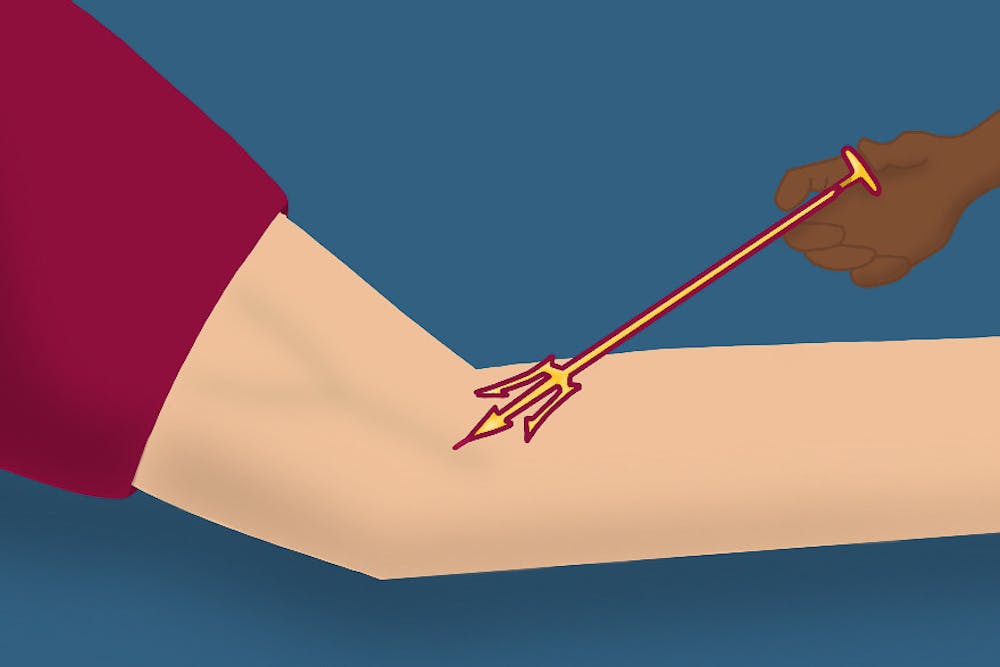Organizations across campus are working to connect students with the ultimate health hack: a vaccine that shields you from multiple types of cancer.
Human papillomavirus is one of the most common sexually transmitted infections, with 13 million Americans infected every year, according to the U.S. Centers for Disease Control and Prevention.
While many HPV infections clear up on their own, specific strains can lead to serious health problems, including cervical, anal and oropharyngeal cancers. The HPV vaccine offers protection against these strains, reducing the risk of cancer and other complications.
Given the prevalence of the virus and its link to various cancers, vaccination among college students is a vital preventive measure that can safeguard individual and public health.
Many college students exhibit vaccine hesitancy — remaining hesitant or unaware of its importance. Reservations often stem from misconceptions about the vaccine's relevance or fears of potential side effects.
"It is extremely safe, it is extremely effective, it is just like any other medical product; There is no medical product on the face of the earth that is 100% safe," said Carolyn Compton, a pathologist and professor at the School of Life Sciences. "There is always a difference in how people react to things, even natural things, that is built into biology."
A common myth about the HPV vaccine is that it promotes promiscuity.
"There have been studies that have looked just at that," said Alexis Koskan, an HPV researcher and an associate professor at the College of Health Solutions. "Has it increased sexual activity? No."
There is also a misconception that the vaccine is not necessary if a person is not sexually active. However, experts like Koskan stress that the vaccine is most effective when administered before any sexual activity begins.
"Even if you're not fully sexually active or don't plan to be, I think that it's just a safe step for you," said Cassie English, a senior studying marketing and business data analytics.
English participated in ForkHPV!, a student-led initiative established by Compton. The program emphasized the importance of taking proactive steps. The organization, which began as an interdisciplinary thesis project, has evolved into an effort to educate college students and has promoted HPV vaccination through outreach events.
English also shared how the ForkHPV! film team put together a film where they interviewed survivors of cervical cancer.
"These people talked about how now, knowing that 30 years ago, if they had gotten this vaccine, they could have potentially avoided having cervical cancer and going through all the procedures," English said.
On the ForkHPV! website there are educational messages and a link to access state-specific immunization records in order to look up whether you've received the vaccine.
There is also a misconception that the vaccine is only for women. The vaccine was initially marketed for young girls to prevent cervical cancer. However, HPV is also linked to head and neck cancers, which are more common in men.
"People still think of this vaccine as a vaccine for women only, so I'd say that is one of the major misconceptions, or that for some reason, it doesn't protect men against cancers," Koskan said.
Another misconception is rooted in misinformation and a growing distrust of the medical community.
"Medicine, much to my chagrin, has become politicized and has been used as a way to frighten people," Compton said. "Something intrinsically good has been made to look like it is something that people should avoid."
Compton highlighted the role of data in ensuring the safety and effectiveness of the vaccine.
"There are all these safety factors put in place to protect you, which is the job of the FDA," said Compton. "They spend months and even years to go through collected data to make certain that the data speaks for itself. Everyone should make their choice but they should do it in an informed way."
Aaron Krasnow, associate vice president and director of ASU Counseling Services, discussed the University's dual approach to promoting HPV vaccination.
"We make the HPV vaccination available at our clinic and partner with student organizations like ForkHPV! ... and other organizations like Devils in the Bedroom and Undergraduate Student Government," said Krasnow.
Accessibility is one of ASU's key objectives. Krasnow said that Student Health Services provides fact sheets from trusted sources like the CDC to help students make informed choices. Resources are accessible, questions are welcome, and support is just an appointment away.
"Any ASU student can make an appointment with us to get the vaccine ... If they're not sure about the vaccine and they want to talk to a doctor or nurse about the vaccine, we make it available," Krasnow said.
Edited by Sophia Ramirez, Sophia Braccio and Katrina Michalak.
Reach the reporter at mmart533@asu.edu.
Like The State Press on Facebook and follow @statepress on X.




